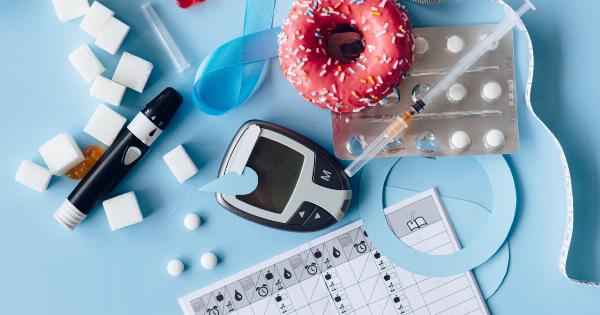Insulin sensitivity refers to the way the body responds to insulin. Insulin is a hormone produced by the pancreas that regulates the amount of glucose in the blood.
It stimulates cells in the liver, fat tissues, and muscles to absorb glucose from the bloodstream and convert it into energy.
When the body becomes less sensitive to insulin, it needs to produce more insulin to maintain normal blood sugar levels.
This can lead to high insulin levels, which can cause a variety of health problems, including obesity, Type 2 diabetes, and heart disease. On the other hand, when the body is more sensitive to insulin, it requires less insulin to regulate blood sugar levels, which can have significant health benefits.
The Role of Diet and Exercise in Insulin Sensitivity
Your diet and level of physical activity have a significant impact on your insulin sensitivity. Here are some tips to help you enhance your insulin sensitivity:.
Eat a Balanced Diet
A diet high in refined carbohydrates and added sugars can lead to high insulin levels and decreased insulin sensitivity. On the other hand, eating a diet that is high in protein, fiber, and healthy fats can help enhance insulin sensitivity.
Some foods that are particularly beneficial for insulin sensitivity include:.
- Leafy greens and other non-starchy vegetables
- Fresh fruits, especially berries
- Whole grains
- Lean proteins, such as fish, chicken, and legumes
- Healthy fats, such as nuts, seeds, and avocados
Avoid Processed Foods and Sugary Drinks
Processed foods are often high in refined carbohydrates, unhealthy fats, and added sugars, all of which can lead to decreased insulin sensitivity. Sugary drinks, such as soda and juice, are also particularly harmful.
Exercise Regularly
Physical activity is an essential part of enhancing insulin sensitivity. Exercise helps build muscle mass, which is linked to increased insulin sensitivity.
Experts recommend getting at least 150 minutes of moderate exercise per week, such as brisk walking, cycling, or swimming. You can also do resistance training, such as weightlifting, to build muscle mass.
Reduce Sedentary Time
Sedentary behavior, such as sitting for long periods, can lead to decreased insulin sensitivity. Aim to get up and move around at least once every hour.
Get Enough Sleep
Insufficient sleep has been linked to decreased insulin sensitivity and an increased risk of Type 2 diabetes. Aim to get at least 7-8 hours of sleep per night.
Manage Stress
Chronic stress can increase cortisol levels, which can lead to decreased insulin sensitivity. Managing stress through meditation, yoga, or other relaxation techniques can help improve insulin sensitivity.
Maintain a Healthy Weight
Being overweight or obese can lead to decreased insulin sensitivity, so maintaining a healthy weight is essential for overall health.
Conclusion
Insulin sensitivity is a critical component of overall health. By combining regular exercise, a healthy diet, and stress management techniques, you can enhance your insulin sensitivity and enjoy the benefits of better blood sugar regulation.




























